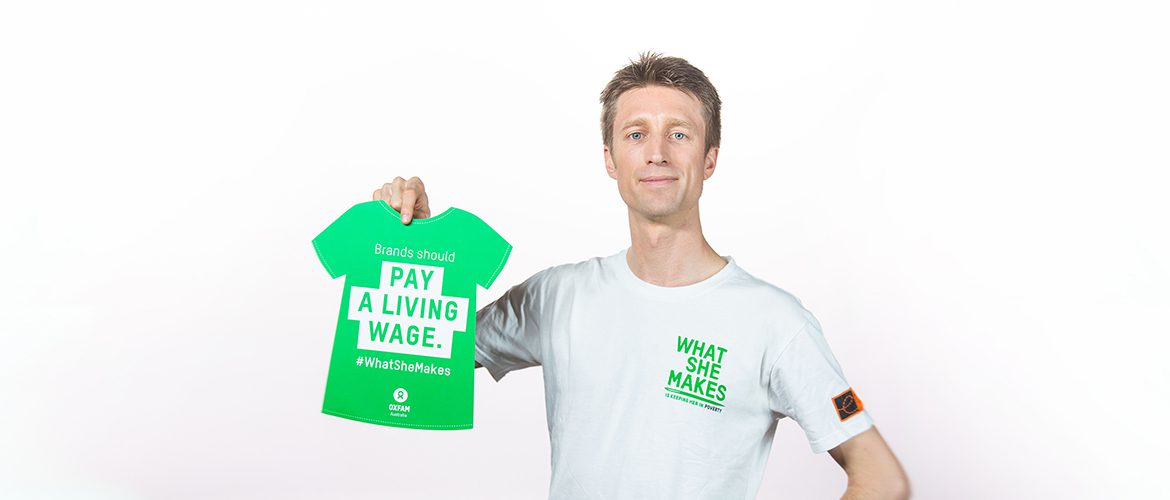Published December 2018
Sammy J speaks for a lot of us – when we’re shopping, we all love a bargain. But, the bargain shouldn’t be what she makes. Big clothing brands like Kmart must pay the women who make our clothes a living wage.
Currently, the women who make our clothes live in poverty, because big clothing brands are part of a system that allows poverty wages. Oxfam’s What She Makes campaign demands big brands commit to paying a living wage.
Why is Kmart being singled out?
Kmart is one of the biggest players in the Australian clothing market. Its revenue has increased by over a billion dollars since 2014, reaching $6 billion in 2018.
Kmart has been one of the leaders in creating a fairer Australian fashion industry. It was quick to sign the Bangladesh Fire and Building Safety Accord after the Rana Plaza factory collapse, and published the names and locations of its supplier factories, taking them out of hiding.
Kmart has also said that they support living wages for garment workers and joined ACT (Action, Collaboration, Transformation), a joint fashion industry and IndustriALL initiative that aims to lift wages and achieve living wages for workers through collective bargaining.
That is all fantastic – but words are one thing. Now we need to see some action. Workers in Kmart’s supply chain are still paid poverty wages.
Kmart needs to show the way, by taking the next step and publishing the milestones they will achieve towards reaching living wages – and a timeframe for those. Kmart needs to again take the lead and become a trailblazer for other Australian brands to follow.
By publishing milestones Kmart will reach along the journey to a living wage, with a transparent timeframe on how it will reach each goal, Kmart will continue as a leader and make real progress for the women who make our clothes.
Has Oxfam spoken to Kmart?
Behind the scenes, we’ve had face-to-face meetings, phone conversations and exchanged emails directly with Kmart (and the other brands we’re watching.) Our meetings have been to encourage Kmart to set and publish key milestones, with a timeframe to reach them so we can see that their commitment to paying a living wage is making real progress. Oxfam even shared with Kmart the plans to release Sammy J’s What She Makes song.
Oxfam has been working on labour rights in garment supply chains for over 20 years, liaising with companies on issues such as worker safety, freedom to join unions and transparency.
We know getting to a living wage is not an easy process, and that it will take some time. That’s why Oxfam prepared a technical guide for brands for guidance and recommendations.
Who are the women featured in the video?
Oxfam has spoken to hundreds of women who make our clothes, including women who produce clothes for Kmart. The three women in this video make clothing for Australian brands, but not specifically for Kmart. Anju, Fatima and Nahida, the women in the video, receive the same minimum wage as women who make clothes in factories supplying Kmart. Their stories represent the thousands of women in the garment industry who work many hours, away from their families, living in poverty.



